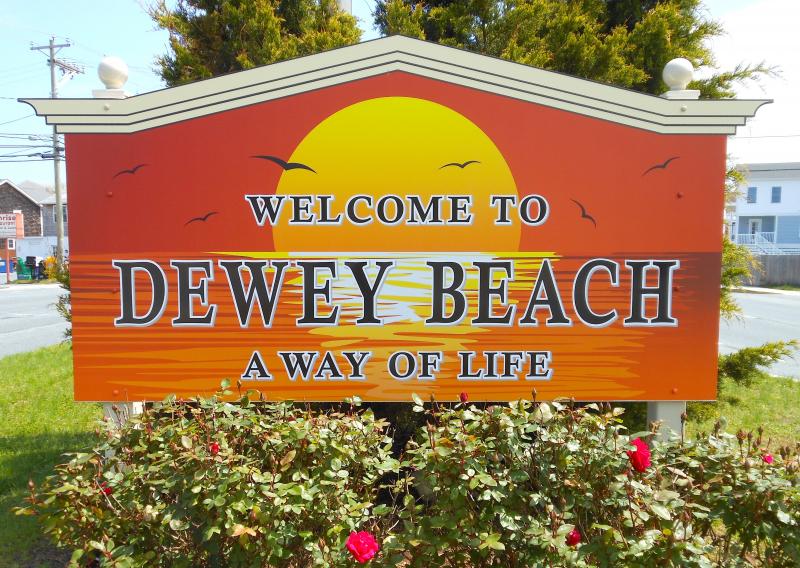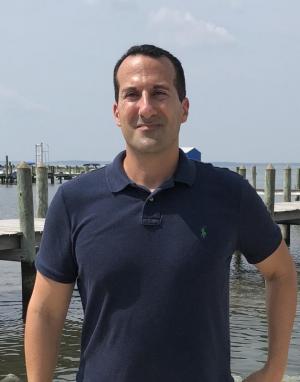Three candidates for two seats in Dewey Beach
Three candidates are running for two seats in Dewey Beach’s 2020 Municipal Election: Commissioner David Moskowitz, Commissioner Gary Persinger, and town budget and finance committee Chair Bill Stevens.
The election will be held from 10 a.m. to 6 p.m., Saturday, Sept. 26, in the Dewey Beach Life Saving Station, 1 Dagsworthy Ave. Currently, eligible voters may complete an absentee voting affidavit and submit their vote at the same time at Town Hall from 9 a.m. to 5 p.m., weekdays. Town Hall will also be open for absentee voting from 10 a.m. to 1 p.m., Saturday, Sept. 19. Absentee voting at Town Hall ends at noon, Friday, Sept. 25.
For election information, contact Dewey Beach Town Hall at 302-227-6363 or go to www.townofdeweybeach.com.
Candidates:
David Moskowitz
Age: 43
Occupation: Town commissioner, financial risk professional
Relevant experience: Two years town commissioner; five years investment chair (helped the town put in place a policy that made $1.1 million in investment income). My diverse skill set includes a CFA/CPA/MBA/MS. Worked hard to be a well-informed commissioner by completing 18 FEMA classes on how to deal with disasters and flooding, dual University of Delaware Local Government Leadership and Planning & Zoning certificates, parliamentary certification, and multiple grant-writing courses. Publish a newsletter and administer a 3,000+ member Facebook group to keep residents informed. Cape Henlopen School District Citizens Budget Oversight Committee member, communications director for Lewes-Rehoboth Rotary. See DeweyBeach2020.com for more information.
How long have you owned property in Dewey Beach? Over 7 years; Dewey Beach is my full-time residence with my 17-month-old daughter Morgan and dog Oscar.
Gary Persinger
Age: 71
Occupation: Retired, formerly healthcare legislation and policy research
Relevant experience: Elected town commissioner in 2016, re-elected in 2018; liaison to comprehensive development plan, budget and finance, audit, and charter and code review committees. Former member of the town planning and zoning commission and comprehensive plan working group. University of Delaware’s Institute for Public Administration courses on Planning Your Community’s Future, Boards of Adjustment, and Creating a Flood Ready Community.
How long have you owned property in Dewey Beach? 35 years.
William “Bill” Stevens
Age: 53
Occupation: Chief financial officer, Diversified Insurance Industries Inc.
Relevant experience: I received my BBA in finance and MBA with a concentration in accounting, both from Loyola University. I spent six years in public accounting as an auditor and management consultant, three years turning around bankrupt companies, six years as the controller and vice president of a publicly traded company where I oversaw 100 employees, and 14 years as a chief financial officer to multimillion-dollar companies, start-ups and nonprofit organizations. I am currently employed as the CFO of Diversified Insurance Industries and continue to act as an outsourced CFO, including oversight of human resources for multiple entities.
How long have you owned property in Dewey Beach? My wife and I were seasonal renters for six years beginning in 2012. We purchased in January 2017, became residents of Dewey Beach in 2018 and moved here full time in March 2020.
Questions:
How would you propose to address the town’s revenue loss and financial insecurity due to the COVID-19 pandemic?
Moskowitz: The anticipated loss of revenue from the accommodations tax and parking will have a negative impact. Unfortunately, the COVID-19 pandemic is likely to have a multi-year impact. The town needs to start preparing a budget early with economic scenarios (best, base, worst, stress) to better adjust to the changing dynamics of the pandemic. We need to evaluate our expenses to see if there are costs that can be cut. The town should think outside the box such as applying for grant opportunities. For example, last year the town was able to make additional money by moving to an interest-checking account and T-bills.
Persinger: Despite some missed opportunities, the town has made strides to restrain spending this summer. Results through July, I believe, suggest our budget may be short by roughly $200,000, with considerable uncertainty about the likely shortfall in accommodations taxes due in October. Transfer taxes also may yield unanticipated revenues. Assuming the deficit is roughly $200,000 to $300,000, I believe we should borrow from existing reserves with explicit agreement to repay these funds at an appropriate interest rate, using the repayments to establish a capital expenditure fund. Early next year, we should assess possible continuing effects of COVID-19 and revisit our strategy.
Stevens: I would not define our current scenario as insecure. Per our audited statements as of March 31, 2020, the town has $9.9 million more in assets than liabilities, and mostly in cash and equivalents. As of the end of July, our fiscal revenue is only down $108,000 compared to budget and our net operating income is $40,000 better than the unadjusted (pre-COVID-19) YTD budget. The town failed to replace seasonal code enforcement employees which created a negative variance to budget of $310,000. The town would benefit from the creation of a special task force aimed at identifying sustainable revenue sources.
As town officials seek to hire a new town manager, what are the qualifications you seek for this position? Historically, turnover for this position is fairly high. How do you propose to bring more stability to town leadership?
Moskowitz: Dewey’s new town manager needs to have a wide skill set including financial knowledge, communicator, grant-writer, and managing infrastructure/flooding. Dewey is a small town where we need someone who’s hands-on. A traditional manager doesn’t work, as there’s some work that can’t be delegated. With a diverse town manager search committee, we will find a great town manager. There’s a daunting list of items to be tackled, but like most jobs, as that list gets addressed, the job will become easier, ensuring longevity and goodwill. As a re-elected commissioner, I plan to transfer my institutional knowledge to help the new hire.
Persinger: With input from the search committee and commissioners, qualifications are well stated in the recent job posting. In my view, the town manager must not only be an effective manager of town operations and services, but also understand the need for effective communication within the town government operation, with the commissioners and other public bodies within the town, with the business community, and equally important, with the public. While the town manager position can be challenging, effective communication, in my view, is essential to success; it builds respect and paves the way for resolving disparate positions on key issues.
Stevens: The town manager needs to be a team-builder with a strong fiscal background combined with municipality leadership. Stability is the result of clear communication and teamwork. I believe the last town manager left because he was micromanaged and not provided the support, tools or resources to efficiently do his job. Ultimately the commissioners are the “board” of this town and should be held accountable for the performance of the town and our manager. However, I believe the commissioners need to be clear on goals, deadlines and operational guidance, and then let that person do their job.
Besides lost revenue due to COVID-19 and the need for a new town manager, what is Dewey Beach’s most pressing need and how would you propose to address it?
Moskowitz: Our most pressing need is not just one thing but the numerous outstanding tasks to be done. The commissioners working with the new town manager need to prioritize the list, delegate where possible, and routinely track progress. These tasks include managing finances to offset the pandemic, increasing responsiveness and communications with constituents, improving safety, and addressing infrastructure and flooding. Some tasks come from paid external consultants’ recommendations (auditor, police consultant) but have not been acted upon. The town will need to forecast the effects of the pandemic on its financial resources as it works on the list.
Persinger: Opportunity is our most pressing need – opportunity to burnish the town’s image, rebuild economic vitality, and restore the balance of events and activities that encourage property owners and visitors to spend more time in town. The effects of COVID-19 have been inescapable, and we need to redouble our efforts to engage in practices known to reduce the rate of transmission and thus create opportunity. Areas where infection was greatest have driven rates down and are seeing the benefits of their efforts. With opportunity, the town has the people and commitment needed for the recovery and renewal that we seek.
Stevens: Dewey Beach currently suffers from misleading communication. The town manager and commissioners need to present a unified factual report that is received by all residents and owners on a consistent basis. One example is that I received a misleading email claiming the investment committee (of which I was a member from 2018-19) helped the town make $1,027,075. The audited financial statements prove an investment income amount of $423,082 since April 1, 2015, and per the Brown Advisory report as of April 30, 2020, the town has lost $129,426 this year and made $530,452 over the trailing 36 months, or a total of 1.7 percent.






















































